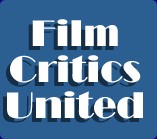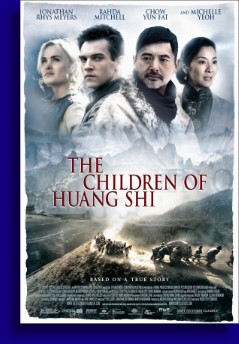



Reviewed by
Christopher Armstead

In 1937 George Hogg (Jonathan Rhys Meyers) is a young inexperienced journalist attempting to get to the Chinese city of Nanjing via Shanghai to cover the brutal Japanese occupation of China. Some of the atrocities had been hinted at, but Hogg wanted to see for himself what was going on, tricks his way into Nanjing which is completely off limits to journalist and what he does witness he was not prepared to handle, atrocities that the Japanese deny that ever happened to this very day. With photographic proof of these atrocities Hogg now has the daunting task of getting out of Nanjing, a task he failed at as his camera and film were seized and he was scheduled for execution. Fortunately for the young Mr. Hogg he was saved at the last minute by communist revolutionary Chen Hanshang (Chow Yun-Fat) who takes the injured young man in, hoping that he can get well enough to get out of China and tell the world what is happening in his homeland.
Before that can happen however Hogg needs to heal up, and to assist him in that is the pretty physician Lee Pearson (Radha Mitchell) who has been in country for a number of years assisting Hanshang and his rebels with medical assistance, and also taking care of an orphanage in the city of Huang Shi that she has forced Hogg to stay at until he is well enough to leave. There is some resistance from the children at the orphanage to a new face, which is understandable when one considers the horrors that these children had to have seen, and there is also resistance from Hogg himself who is much more comfortable in a English estate drinking tea as opposed to cleaning lice off of ‘savages’. But choosing the make the best of a bad situation Hogg gains the children’s trust through his numerous benevolent actions and eventually begins to care for the children and their well-being as if they were his own.
There is a war going on, or at least for everyone who isn’t Japanese who is calling this assault something else completely, and there is danger everywhere. Concerned that the



Chinese National Army might take his boys and enlist them to fight, and equally concerned that a Japanese regimen may discover their location and do to them what he’s seen them do to other civilians – women and children alike – Hogg takes them on a treacherous trip through snow and mountains to a place where they could be safe. Though the trip is rife with peril, Hogg does have the lovely Dr. Pearson by his side, bringing her secrets with her, and also the deadly idealist Hanshang bringing his firepower and opposing views, but they all strive for a common goal and that is safety of these children they all care for.
Ably directed by Roger Spottiswood ‘The Children of Huang Shi’ is a film that I suppose you could term a ‘mini-epic’ in that it has a vast subject matter and focuses on an extremely important part of world history, and even has some impressively filmed war sequences and large scale events, but doesn’t have the true ‘feel’ of a true epic film say like an ‘Enemies at the Gate’ or a Tae Guk Gi’ had to it. This approach works for this film because despite the epic nature of the subject matter, it’s really a closed in personal film largely focusing on one man and the important relationships in his life, and how those relationships affected his life and how used this to effect change, even on a relatively small level. To that end Jonathan Rhys Meyers does a very credible job as the young idealist journalist George Hogg, and despite a script that often times fails to separate itself from its predictable nature, Rhys Meyers surpasses the limitations of the script with a performance that gives his character an emotional arc that challenges his idealism and also allows him to regain it in a way that makes us believe in his character as real person and not just a movie caricature.
I’ve said it before and it still applies in that Chow Yun-Fat has something that all the acting classes in the world can’t teach, and very few actors actually possess, and that’s screen presence. It remains true here in Chow’s relatively few scenes how he commands the screen and gives his character a regalness and believability even if he were to remain completely silent. Michelle Yeoh also gives a solid turn in a brief appearance as woman making commerce and forced to do things she is not proud of to survive in this troubled time. Rahda Mitchell is a fine actress and she’s good in this film for the most part, and her character was critical to the story but it just felt as if the romance between her character and Rhys Meyer’s character was forced and the romance aspect of their relationship did very little to further or add to the tale.
Being a bit of a history buff I enjoy movies such as this that tell me something about the world that I wasn’t aware of, such as the life of George Hogg and what he accomplished. I also enjoy doing my own research to find out where the ‘creative liberties’ were taken in the story and there were quite a few levied upon ‘The Children of Huang Shi’, but this is movie and not a history lesson, and as a movie it was a very good one and one that I hope gets seen by as many people as possible.

